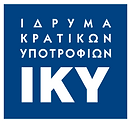Mediterranean Diet: Traditional Culinary Practices and Their Evolution
The Mediterranean diet is characterized by its emphasis on fresh, seasonal, and locally sourced ingredients. Key components include fruits, vegetables, whole grains, legumes, nuts, and olive oil, with moderate consumption of fish and poultry, and limited intake of red meat and sweets. The use of herbs and spices to enhance flavor is also significant, reflecting the region's rich agricultural diversity.
One of the most notable features of traditional Mediterranean cuisine is the communal aspect of meals. In many Mediterranean cultures, food is not merely sustenance but a means of bringing people together. Meals are often enjoyed with family and friends, emphasizing the social and cultural significance of food. This practice fosters a sense of community and belonging, further enriching the dietary experience.
In addition to the communal dining experience, traditional Mediterranean cooking methods play a crucial role in preserving the nutritional quality of food. Techniques such as grilling, baking, and steaming are common, minimizing the need for unhealthy added fats. Fermentation and pickling are also traditional practices that enhance the shelf life of vegetables and can contribute beneficial probiotics to the diet.
While the Mediterranean diet has ancient roots, its practices have evolved considerably over time, influenced by historical events, globalization, and modern nutritional science.
In this WebQuest you are called to trace the culinary journey in the Mediterranean from past to now so to develop the evolution of these practices.
Take a look at this presentation:
We are thrilled to announce the grand opening of our virtual Mediterranean restaurants. Within these digital doors, you will step into the heart of tradition and innovation!!
Work in national teams to set up a virtual Mediterranean-inspired restaurant. Invent creative Mediterranean-inspired names and design logos for your virtual restaurants. Develop diverse menus featuring traditional Mediterranean dishes. Write and share blogs about various aspects of Mediterranean cuisine, including:
-
Cooking and serving utensils and tools
-
Traditional food and ingredients
-
Cooking techniques
-
Spices, herbs, and condiments
-
Food festivals and other related events
These blogs will be posted to the following blog Padlet, allowing your peers to read and learn from you.
https://padlet.com/meddiet4health/virtual-mediterranean-restaurants-hijbbxr6650bvixq
Trying to gain a deep appreciation for the rich history and enduring appeal of Mediterranean cuisine, we invite you to work in national teams and prepare a quiz focusing on different aspects of Mediterranean cuisine:
-
Cooking Techniques: Prepared by 1st EPAL Nafpaktou
-
Cooking and Serving Utensils and Tools: Prepared by 2o Esperino EPAL Acharnon
-
Food and Ingredients: Prepared by the team in Slovakia
-
Spices, Herbs, and Condiments: Prepared by the team in Turkey
At the end, post them to the twinboard and give your peers the chance to test their knowledge by taking quizzes prepared by you.
Focusing more to the evolution of kitchen technology-one of the factors that took a role to the Mediterranean Diet evolution, you are called to work in teams one of the following tasks:
Traditional vs. Modern Tools: Compare traditional kitchen tools (like pestles and mortars) with their modern counterparts.
Cooking Methods: Explore the differences between traditional cooking methods (like slow-cooked stews and wood-fired grilling) and modern techniques (like pressure cooking and sous vide).
Each team will present their research findings to the class and post them to the same twinboard as before.
Your presentations should include:
-
Visual Aids: Use slides, images, or videos to illustrate the evolution of kitchen tools and cooking methods.
-
Demonstrations: If possible, demonstrate the use of both traditional and modern tools and techniques.
After the presentations, reflect to the Forum, by clicking to go to the discusiion button, on the following points:
How has kitchen technology transformed the way we prepare food?
What are the benefits and drawbacks of traditional versus modern cooking methods?
How do these changes impact the taste, nutrition, and cultural significance of Mediterranean dishes?





